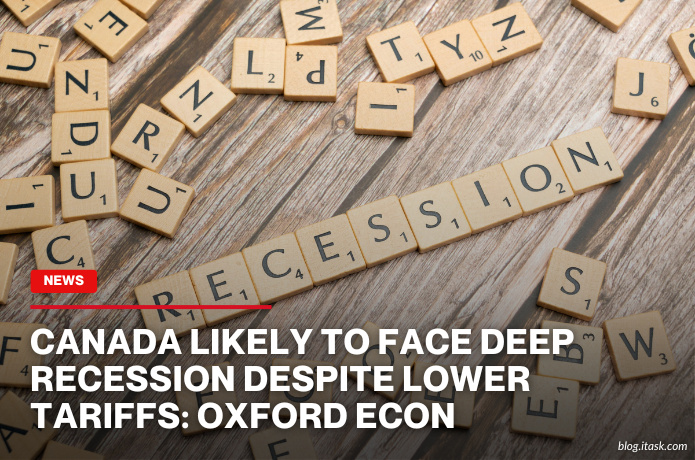Canada Likely To Face Deep Recession Despite Lower Tariffs: Oxford Econ
Canada Likely To Face Deep Recession Despite Lower Tariffs: Oxford Econ

Canada is on track for a deep recession, even though recent tariff reductions might suggest otherwise. Oxford Economics warns that global trade tensions—especially U.S. tariffs on other countries—are hurting demand and investment, which will likely hit Canada hard. The firm expects Canada's economy to shrink by 0.2% in 2026, following weak growth of just 0.7% in 2025.
A major concern is job losses. Oxford Economics predicts that 200,000 jobs could disappear in the second half of 2025, pushing unemployment to 7.7%. This would reduce consumer spending and worsen the already slow housing market.
While U.S.-Canada tariffs have eased, broader global trade uncertainty remains. The U.S. has imposed 25% tariffs on many non-USMCA goods, and Canada has responded with its own 25% tariffs on about $95 billion worth of U.S. imports. These measures are expected to raise prices for Canadian consumers and businesses.
Canada's economy is also affected by its trade dispute with China. Tariffs on key Chinese goods have led to retaliatory measures, which are expected to impact regions like Atlantic Canada and the Prairie Provinces. This adds to the uncertainty and could further deter private investment.
Inflation is another concern. Although it briefly dipped to the Bank of Canada's 2% target in April, Oxford Economics expects it to rise to 3% by the end of 2025 due to supply chain issues and counter-tariffs. This complicates the central bank's efforts to stabilize the economy.
In summary, despite lower tariffs between Canada and the U.S., global trade tensions and domestic challenges are setting the stage for a significant economic downturn in Canada. Policymakers will need to address these issues to mitigate the impact on the economy.
